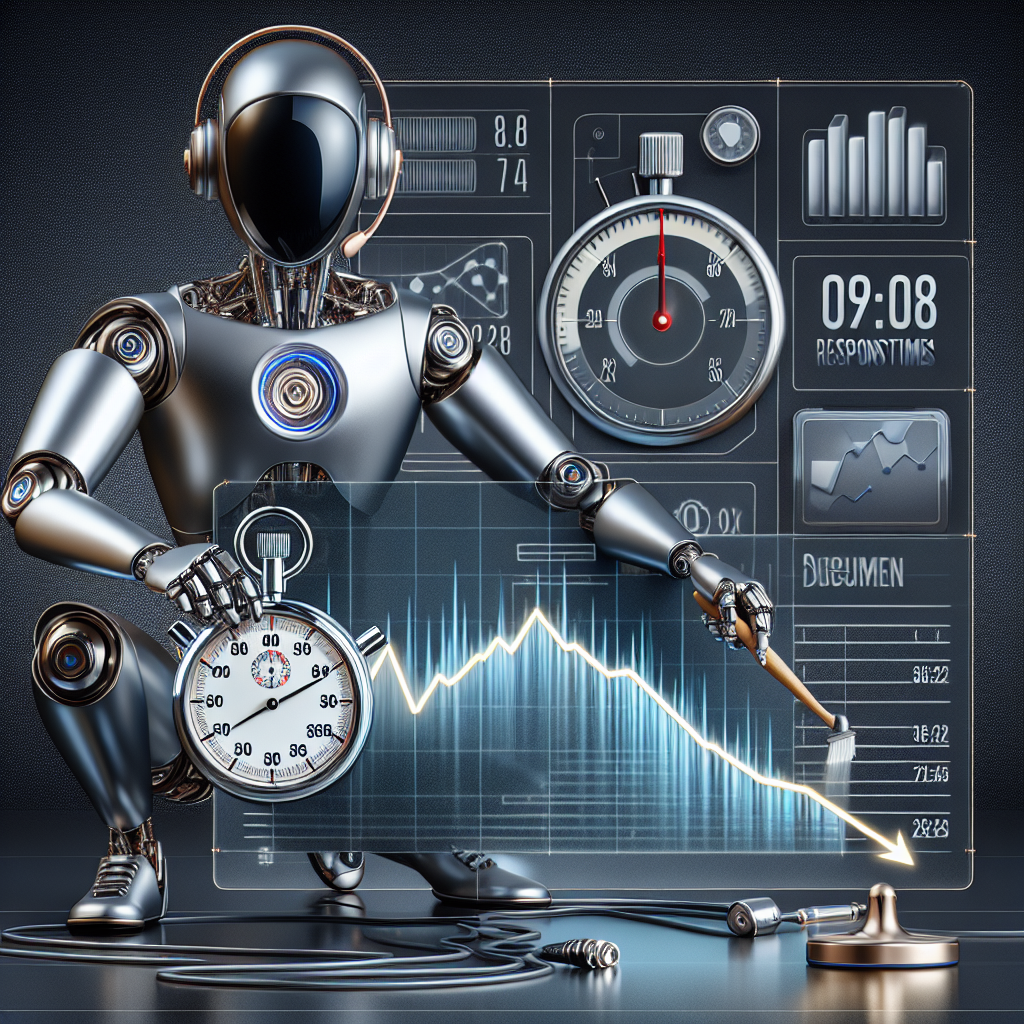In today’s fast-paced world, customers expect quick and efficient responses when they reach out to companies for support or assistance. Long wait times and slow responses can lead to frustration and dissatisfaction, which can ultimately harm a company’s reputation and bottom line. This is where artificial intelligence (AI) comes into play, offering a solution to improve customer service response times and provide a better overall experience for customers.
AI technology has made significant advancements in recent years, allowing companies to automate and streamline their customer service processes. From chatbots to virtual assistants, AI tools can handle a wide range of customer inquiries and issues, freeing up human agents to focus on more complex problems. By leveraging AI, companies can respond to customer queries instantly, 24/7, without the need for human intervention.
One of the key benefits of AI in customer service is its ability to handle a high volume of inquiries simultaneously. Unlike human agents, AI tools can interact with multiple customers at once, providing instant responses and solutions to common issues. This not only reduces wait times for customers but also increases efficiency and productivity for the company.
AI can also help companies personalize the customer service experience. By analyzing data from past interactions and customer preferences, AI tools can tailor their responses to each individual customer, providing a more personalized and engaging experience. This can help build customer loyalty and satisfaction, leading to increased customer retention and lifetime value.
Furthermore, AI can assist human agents in resolving complex issues more quickly and accurately. By providing real-time information and analysis, AI tools can help agents diagnose problems and find solutions faster, leading to quicker resolution times and higher customer satisfaction rates.
Overall, AI plays a crucial role in improving customer service response times by automating routine tasks, handling high volumes of inquiries simultaneously, personalizing the customer experience, and assisting human agents in resolving complex issues. By leveraging AI technology, companies can provide faster, more efficient, and more personalized customer service, ultimately leading to higher customer satisfaction and loyalty.
FAQs:
Q: What are some common AI tools used for customer service?
A: Some common AI tools used for customer service include chatbots, virtual assistants, sentiment analysis software, and predictive analytics tools.
Q: How can AI help improve response times in customer service?
A: AI can help improve response times in customer service by automating routine tasks, handling high volumes of inquiries simultaneously, personalizing the customer experience, and assisting human agents in resolving complex issues.
Q: Can AI replace human agents in customer service?
A: While AI can automate and streamline many customer service processes, human agents are still essential for handling complex issues and providing a personal touch to the customer experience. AI and human agents can work together to provide the best possible service to customers.
Q: How can companies implement AI in their customer service operations?
A: Companies can implement AI in their customer service operations by investing in AI tools and technologies, integrating them with their existing systems, training their staff on how to use them effectively, and continuously monitoring and optimizing their performance.
Q: What are some benefits of using AI in customer service?
A: Some benefits of using AI in customer service include faster response times, increased efficiency and productivity, personalized customer experiences, improved customer satisfaction and loyalty, and the ability to handle high volumes of inquiries simultaneously.

